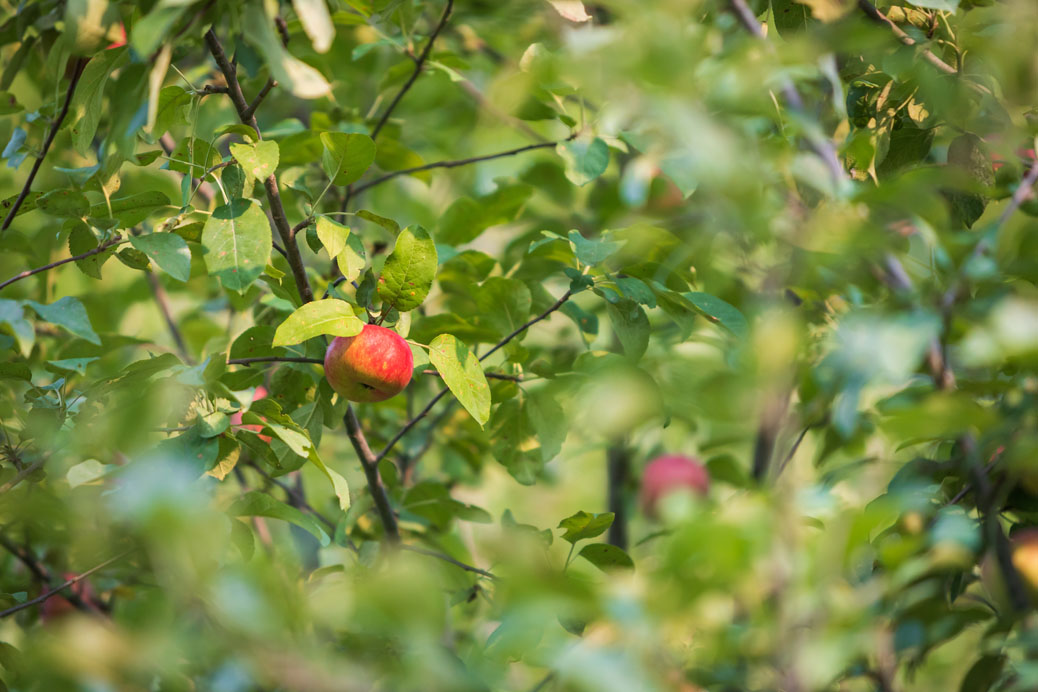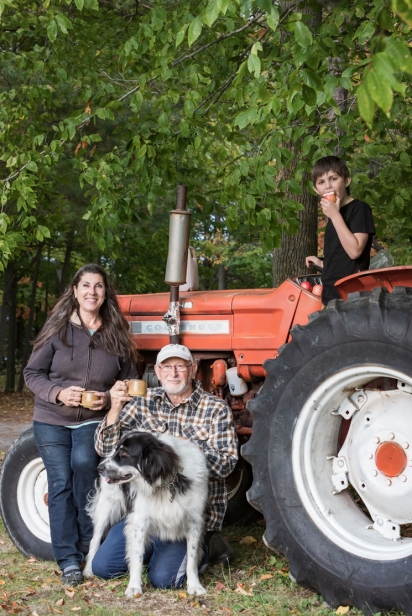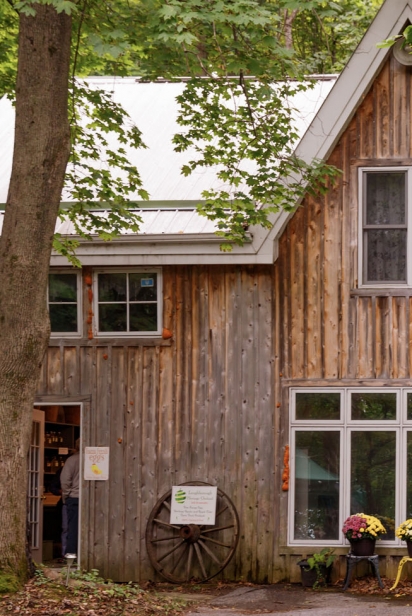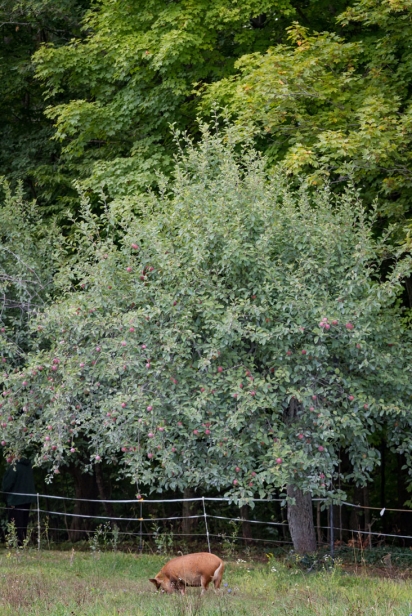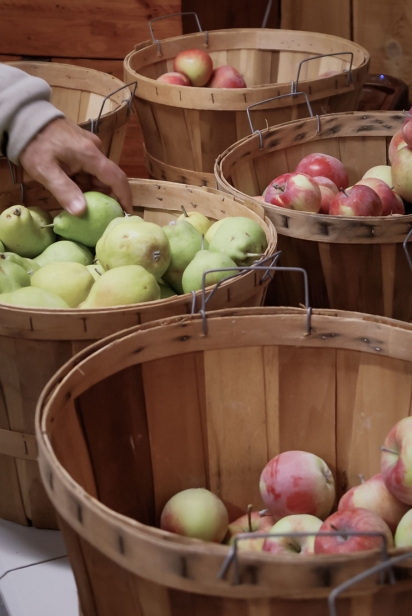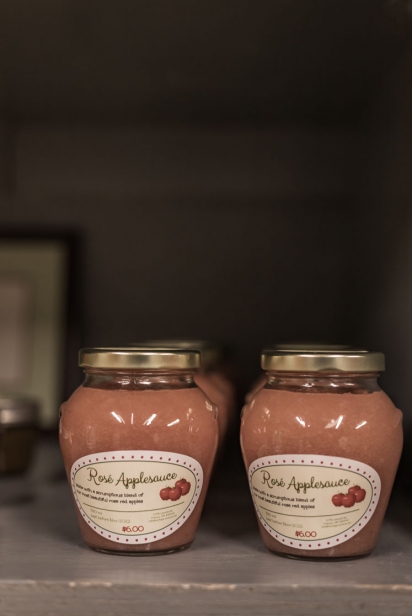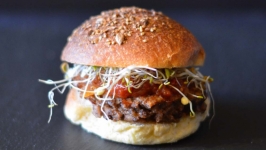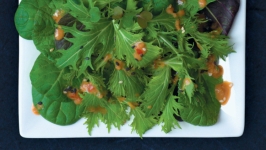Saving the Heirlooms
When Stella and Marc Hiemstra bought Loughborough Heritage Orchard in 2014, there were no blossoms on the apple trees and not a single apple come harvest season. The orchards had been neglected for more than 15 years and the trees had simply given up.
But with prodigious energy, lots of love and careful and judicious pruning, the couple has brought this expansive orchard in South Frontenac, in the countryside just behind Kingston, back to life. The Hiemstras are now growing 24 varieties of apples — the majority of which are heritage and vintage. Heritage means that the apple variety dates from before 1940, while vintage means it was developed between 1940 and 1975. They have planted close to 60 new trees since their first full season on the farm in 2015.
“When we choose the new varieties to plant, we are looking well ahead,” Stella says, “planting trees that like a warmer climate, like Cox’s Orange Pippin.” They source the young trees, called whips, from a nursery on Salt Spring Island, B.C., one that specializes in heritage varieties.
The bulk of the productive trees in the original orchard are more than 70 years old, many of them planted in the 1930s. They are standard trees, not dwarf, which means they are larger and offer a classic canopy shape. “These are proper big old standard trees, grafted onto Russian rootstock so that they’re cold-hardy,” Stella explains.
Before moving to Loughborough, the couple lived in Bobcaygeon, Ont., where Marc, now retired, was a high school teacher with the Trillium Lakelands District School Board.
“We weren’t really looking for a project,” Stella recalls, “but when we discovered this beautiful property, we decided that we had one more move in life.” The farm is located on Lake Loughborough’s shores, surrounded by ancient pines and a gentle micro-climate.
“Our micro-climate is due to our proximity to Loughborough Lake and possibly because the orchard is nestled in between the lake on the north, and high rock outcroppings on the south,” explains Stella. “We have had no frost here at all despite frost having touched other farms all around us.”
A Dupont Canada executive had built the expansive 1950s farmhouse as a summer getaway from Montreal. The house is suffused with light from windows that look out towards the orchards on one side and the magnificent lake on the other. Nearby, an apple-packing house, which now features a commercial kitchen and pressing machine for juice, dates from the 1940s and does double duty as the farm shop, selling apples and eggs.
While apples may be the primary harvest from this 78-acre farm, it’s a mixed-use smallholding that produces other fruit for private consumption such as plums, pears, cherries, mulberries and haskaps. “It’s nice to have multiple crops that flower at different times during the season for pollinators,” Marc explains.
And then there are the animals. There are pigs, chickens and horses on site for complementary reasons. “They’re not just pets,” Stella says. The chickens — up to 100 of them — produce eggs and meat, but they also graze underneath the apple trees, keeping the bugs and larvae at bay. They’re particularly fond of the plum curculio, a pest that attacks apples and plums.
Stella and Marc also keep KuneKune pigs. “They’re the cutest,” says Stella, and she’s right. These pigs, which grow a hairy coat in winter and are originally from New Zealand, reach about knee height when fully grown and have short snouts with mouths set at the front. They’re designed to eat grass, not dig in the mud, so they’re perfect for mowing under the trees and keeping the ground clear of fallen fruit, which may contain hidden bugs and larvae.
And then there are the horses. Marc has a lifelong love of horses and now keeps five of them to help with pest and orchard management. Not only do they eat grass under the trees, but their urine is an effective treatment for controlling apple scab and other fungal diseases. And their manure is the best fertilizer ever.
The fruit produced at Loughborough is organic. The Hiemstras use no synthetic pesticides nor fertilizers, but this doesn’t mean that the apple trees are not treated. “Just because an orchard is organic, doesn’t mean you do nothing,” Stella says.
“On a visit to Cornell University and their world-renown orchards, I was surprised to learn that even there, they do not grow apples organically. We were told that it’s just too difficult. There are so many pests and fungal infections that can attack the fruit and the trees. Therefore, in an organic orchard, if you are harvesting 50 per cent of the fruit, you’re doing very well.”
The Hiemstras start treating their trees in the spring before the first leaf has unfurled. They spray the trees regularly using natural substances such as garlic oil, baking soda, canola oil and kaolin clay. Some of these additives coat the tree and the fruit so insects cannot get through; others, such as garlic oil, are also distasteful to bugs such as mosquitoes and ticks.
“We don’t want to kill the insects,” Marc says, “we’d just prefer it if they didn’t eat the apples.”
Disease burdens change with the weather, so it’s a constant case of assess and react. And fruit trees are attractive to so many animals; crows and blue jays are a problem, as are skunks, porcupines and raccoons. The chickens tempt foxes and coyotes. To deter the birds, a speaker system broadcasts the calls of hawks and other birds of prey around the farm. At the same time, Gemma, a massive, shaggy and extremely mellow Great Pyrenean livestock dog, keeps the other aggressive critters at bay.
Pruning is essential too. Strong, healthy trees without deadwood to harbour bugs are more resistant to disease. When first they attempted it, the Hiemstras hired a crew from northern Ontario, “who butchered the trees,” Stella recalls. “But now we are pretty happy with how they are looking — there’s plenty of space between the branches for air to circulate and the fruit to ripen.”
It’s a big job and one that keeps the couple fit, using their Swiss pruning shears. These high-tech tools come with a battery backpack and a pneumatic cutting action, either hand-held or mounted on a long stick to reach the top of trees.
It’s a wonder that the Hiemstras don’t get discouraged by the constant fight with nature, which seems to conspire to thwart their goals of producing healthy apples without resorting to chemicals.
“Every apple has a purpose,” Stella explains. “When we pick, we do so into several baskets; there are pig apples, which are the least quality. Then we have cider apples for pressing. Next are processing apples and finally people apples — those are for eating in your hand. So, I don’t get discouraged as nothing goes to waste.”
Loughborough Heritage Orchard
3371B/C Lakeside Rd., Inverary, Ont.
heritage-orchard.com | facebook.com/heritageorchard


